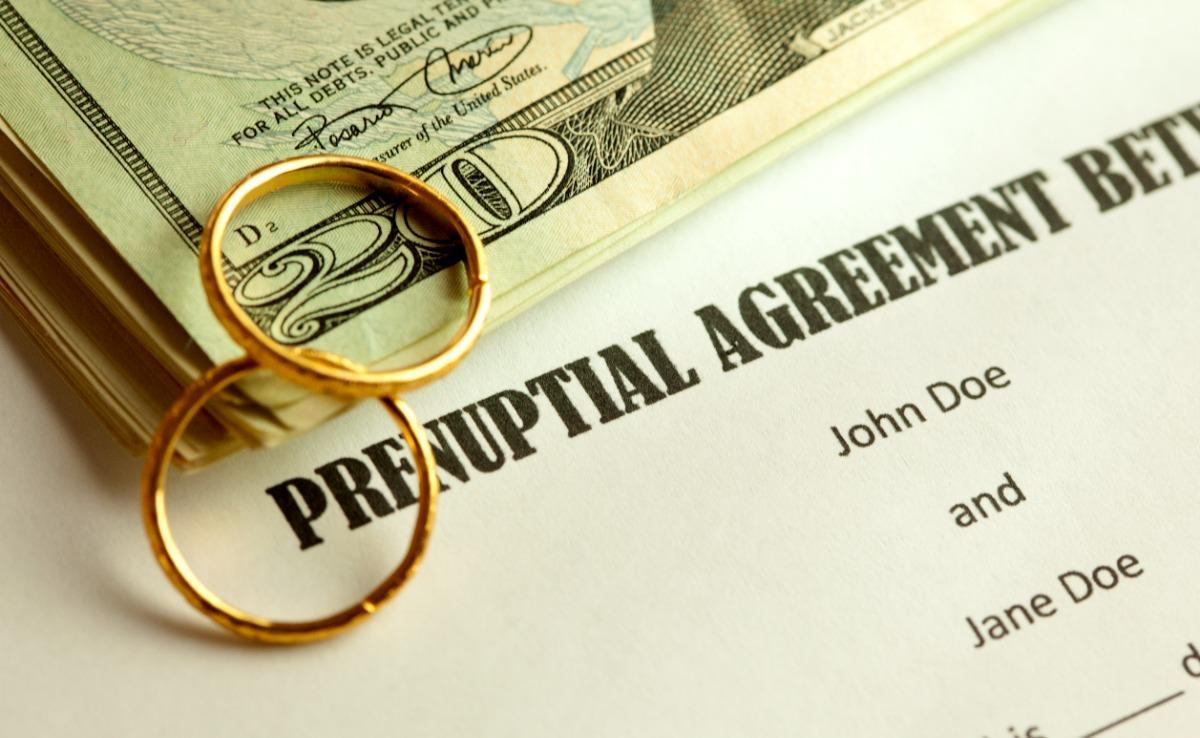
- posted: Oct. 13, 2021
“Prenups” or most commonly referred to as premarital agreement are more common than most people think.
What exactly is a prenup? A prenuptial agreement is a contract entered into prior to your marriage that allows two spouses to detail how property and assets will be divided in the event of a divorce. The goal of a prenup is to set forth, in advance, who will retain ownership of various properties such as land, money, and other assets if a divorce did occur. In addition, spouses may want to designate how much support would be paid/received in the event of a divorce.
Of course, each state has their own rules governing prenuptial agreements. New Jersey has adopted the Uniform Premarital and Pre-Civil Union Agreement Act, N.J.S.A section 37:2-31 through 37:2-41. In New Jersey, a prenup agreement must be in writing and signed by both parties. The agreement becomes effective upon marriage of the parties.
A common question that arises when discussing a prenup is what is included? A Prenup can include:
- The rights and obligations of each of the parties when it comes to property;
- The right to buy, sell, use, transfer, exchange, abandon, lease, consume, expend, assign, create a security interest in, mortgage, encumber, dispose of, or otherwise manage and control property;
- The disposition of property upon divorce, death, or the occurrence or nonoccurrence of any other event;
- The modification or elimination of spousal support;
- The making of a will, trust, or other arrangement to carry out the provisions of the agreement;
- The ownership rights in and disposition of the death benefit from a life insurance policy;
- The choice of law governing the construction of the agreement; and
- Any other matter, including their personal rights and obligations, not in violation of public policy.
It is important to note that a prenup shall not adversely affect the right of a child to support, nor can a parent waive child support. Child support is the right of a child and therefore neither parent can waive such support nor can a prenup address custody.
A prenup may be amended or revoked only by a written agreement signed by the parties, and the amended agreement or revocation is enforceable without consideration. At Helfand & Associates, we are sometimes presented with an issue of setting aside a prenup agreement. A party seeking to set aside a prenup has the burden to prove that that agreement executed was not voluntary or the agreement was “unconscionable” when it was executed because:
- There was not full and fair disclosure of earnings, property, or financial circumstances;
- There was not a voluntary waiver of disclosure in writing regarding property and financial circumstances;
- The moving party did not have or could not have adequate knowledge of the property or financial obligations of the other party; or
- The moving party did not consult with his/her attorney and didn’t waive the opportunity to consult with an attorney.
Who should consider a prenuptial agreement? We recommend considering a prenup if 1) you were previously married; 2) you are a business owner; 3) you are likely to receive an inheritance or large sum of money in the future; 4) you are the recipient of a trust; or 5) you have significantly greater assets or high income than your future spouse.
People often believe a prenup is “unromantic.” A marriage is a very happy decision. A life together, however, will bring forth issues relating to money, children, work, and health. Parties that communicate regularly and learn to calmly and gently address challenging issues have the strongest marriages. Please consider using the prenup as a positive exercise in communication and resolution. If the terms are properly drafted and are reasonable, it should only cause modest disagreements, particularly if the focus of the relationship is love and care for the other party. If the issues are very one sided it will likely be a problem. It should probably not be “hardcore negotiations” from the start, this is not a good sign. Also, if the terms are reasonable and the other person reacts “significantly”, this too may signal a problem in the relationship. Both sides seeing and understanding the other person’s perspective is the goal. A person once gave me a great analogy: a prenup is like a lifeboat on a cruise. You leave it on the side, enjoy the cruise, and you only use it in the event of an emergency (a divorce). It will help you get out of trouble in a much better manner than without it.
It is highly recommended that you speak with an experienced New Jersey Family Lawyer so that a proper prenuptial agreement can be prepared for you. If you are interested in learning more about your options regarding a prenup or if you previously entered into a prenuptial agreement, please contact Helfand & Associates today for a consultation at 973-539-1000.
- Alimony (15)
- Bankruptcy (4)
- Business (3)
- Child Support (10)
- Children (19)
- Citizenship (1)
- Civil Litigation (3)
- Collections (2)
- Court Orders (3)
- Court Procedure (4)
- Court Rules (6)
- Credit Cards (2)
- Custody (12)
- Debt (5)
- Debt Collection (2)
- Divorce (67)
- DUI (3)
- DWI (3)
- Expungement (1)
- Family Law (38)
- Fathers Rights (2)
- Guardian (3)
- Judgments (1)
- Lawsuit (1)
- Litigation (2)
- Personal Representative (1)
- School (1)
- Special Needs Trust (1)
- Taxes (3)
- Trust (1)
- Worker's Compensation (3)


